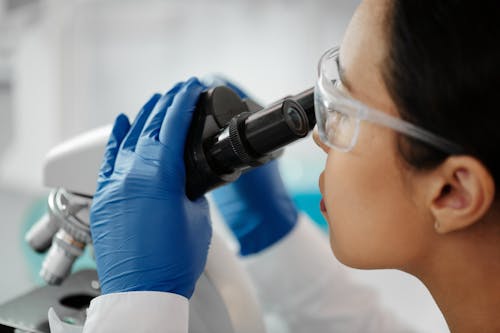Week In Review: Foreseen Sells ADC Rights To France's Ipsen In $1 Billion Deal

Image Source: Unsplash
Deals and Financings
China’s Foreseen Biotechnology out-licensed global rights for an ADC candidate to France’s Ipsen in a deal potentially worth over $1 billion (see story). FS001 targets a novel tumor associated antigen, which is highly expressed in a range of solid tumors and plays a critical role in tumor proliferation and metastasis. This novel tumor antigen was identified using Foreseen’s high throughput, integrated translational proteomics, and artificial intelligence (AI)-powered screening platforms. The transaction was Ipsen’s second ADC acquisition this year following a $900 million deal in April for rights to Sutro Biopharma’s preclinical ROR1-targeting ADC.
Sichuan Biokin Pharma, the parent of Baili Pharmaceutical, filed to stage an IPO on the Hong Kong Exchange that could raise $500 million (see story). Baili is an generics/Traditional China Medicines company that established an innovative drug development company, SystImmune, in Seattle 10 years ago. Last December, SystImmune partnered BL-B01D1, its lead anti-HER3 ADC that also targets EGFR, with Bristol Myers Squib in a blockbuster $8.4 billion deal. The agreement included provisions for an $800 million upfront payment and another $500 million in near-term milestones. The $500 million target of the IPO is a very ambitious goal in the currently cautious IPO market, but Biokin has an enviable track record that could make it happen.
Chengdu’s Keymed Biosciences (HK: 02162) out-licensed global rights (ex-China) for a pair of bispecific candidates to Belenos Biosciences in a $185 million agreement (see story). In return for CM512 and CM536, Keymed will receive $15 million upfront and milestones of up to $170 million, plus royalties. Belenos will develop, manufacture, and commercialize the two dual-specific antibodies CM512 and CM536 globally (excluding Greater China). A Keymed subsidiary will receive a 30% ownership of Belenos. Belenos will be responsible for all development costs of CM512 and CM536, including clinical trials.
South Korea’s Genexine (KOSDAQ: 095700) will merge with EPD Biotherapeutics, a company developing an innovative targeted protein degradation (TPD), in exchange for 16% of Genexine’s stock, worth about $180 million (see story). EPD has developed a bioPROTAC platform, known as EPDegTM, that is based on an mRNA-based bioPROTAC technology. The platform creates fusion-protein degraders delivered as mRNA-LNP that do not depend on tissue specific expression of E3 ligase. EPD believes the technology will overcome the limitations of existing small molecule-based PROTAC technology.
CRO/CMO News
The Biosecure Act is back in the news following a speech given yesterday by the Speaker of the House, Mike Johnson, who vowed to pass the bill before the end of the year (see story). The Biosecure Bill prohibits US pharmaceutical companies from doing business with China-based CROs, especially WuXi AppTec, but including other China CROs as well. The legislation is designed to prevent the CROs from passing on information about drugs under development by US companies at the CROs and also from forwarding genetic information about US citizens who participated in clinical trials. Speaker Johnson also plans to stop US investment in China.
Shanghai Sanyou Bio, a biologics CRO, will integrate a proprietary generative AI antibody design platform (GeoBiologics) developed by BioGeometry, a Beijing AI company (see story). Sanyou has developed an antibody library construction platform, based on nine super-trillion antibody libraries as its core, with a capacity of up to 10 trillion. BioGeometry specializes in AI-driven protein design with an R&D platform. The combination will offer a Dry-Wet antibody R&D platform that integrates BioGeometry's AI algorithm with Sanyou Bio's wet lab capabilities. Sanyou expects the AI platform to speed up development and add new targets for candidates.
Trials and Approvals
AusperBio, a Hangzhou-Boston biotech, reported its lead drug, an unconjugated antisense oligonucleotide (ASO) that targets all HBV mRNA, has now treated 193 participants in global and China clinical trials (see story). The patient base includes 101 participants with chronic HBV. AHB-137 is designed to trigger the degradation of all HBV RN. The candidate is a novel unconjugated antisense oligonucleotide (ASO) with a dual mechanism the could become a backbone for novel therapies that aim to find a functional cure for CHB. The novel ASO is currently in a global Phase Ib trial and a Phase II trial in China.
Zhiyi Biotech of Guangzhou, a company developing live biotherapeutic products (LBPs), reported its heat-killed Bacteroides fragilis product for Chemotherapy-induced Diarrhea (CID) was well-tolerated in a US trial (see story). The clinical study was a randomized, double-blind, placebo-controlled, sequential dose-escalation trial that examined the safety and tolerability of SK10 in 24 healthy adult subjects. All dose levels of SK10 were generally safe and well tolerated. Based on the results, Zhiyi will advance SK10 into a trial that tests the candidate in CID patients. Zhiyi’s lead product, SK08, is in a Phase III clinical trial to treat IBS-D, which puts it ahead of the other LBPs in China.
Chengdu Hinova Pharma received US FDA Fast Track designation for HP518, an investigational drug for Androgen-receptor positive (AR+) triple-negative breast cancer (TNBC) (see story). HP518 is a potent PROTAC AR degrader that has shown efficacy in AR+ TNBC. According to Hinova, the molecular subforms of TNBC are particularly aggressive forms of breast cancer, without targeted treatment options but accounting for approximately 15-20% of all breast cancer cases. They lack estrogen and progesterone receptors along with HER2 expression. However, up to 50% of TNBC cases express the androgen receptor, HP518’s potential target.
More By This Author:
Week In Review: Samsung Biologics Signs $1 Billion Manufacturing Contract With US Biopharma
Week In Review: Fosun Pharma Plans $690 Million Deal To Privatize Henlius, Its Biologics Subsidiary
Week In Review: FutureGen Sells mAb For IBD To AbbVie In $1.7 Billion Deal
Disclosure: None



